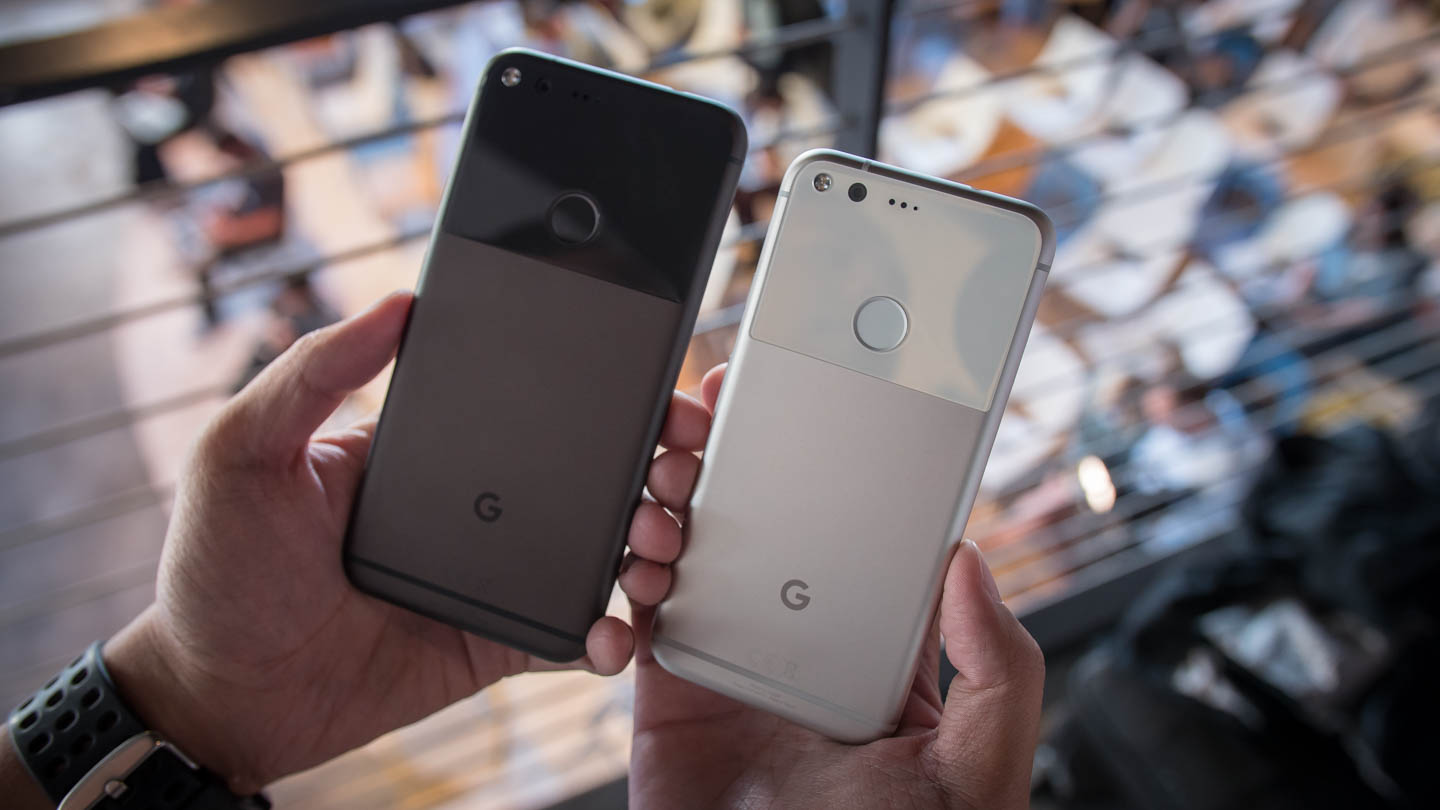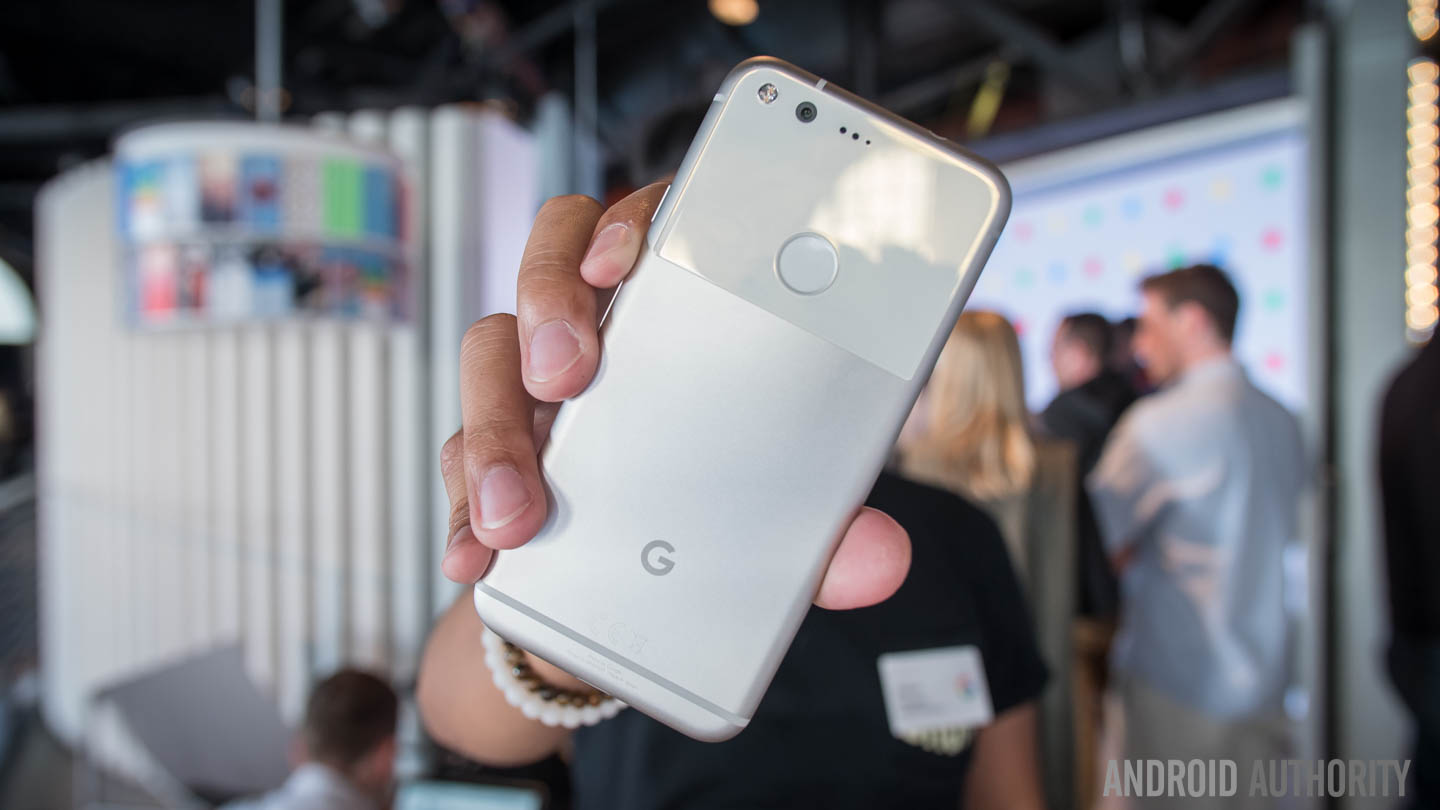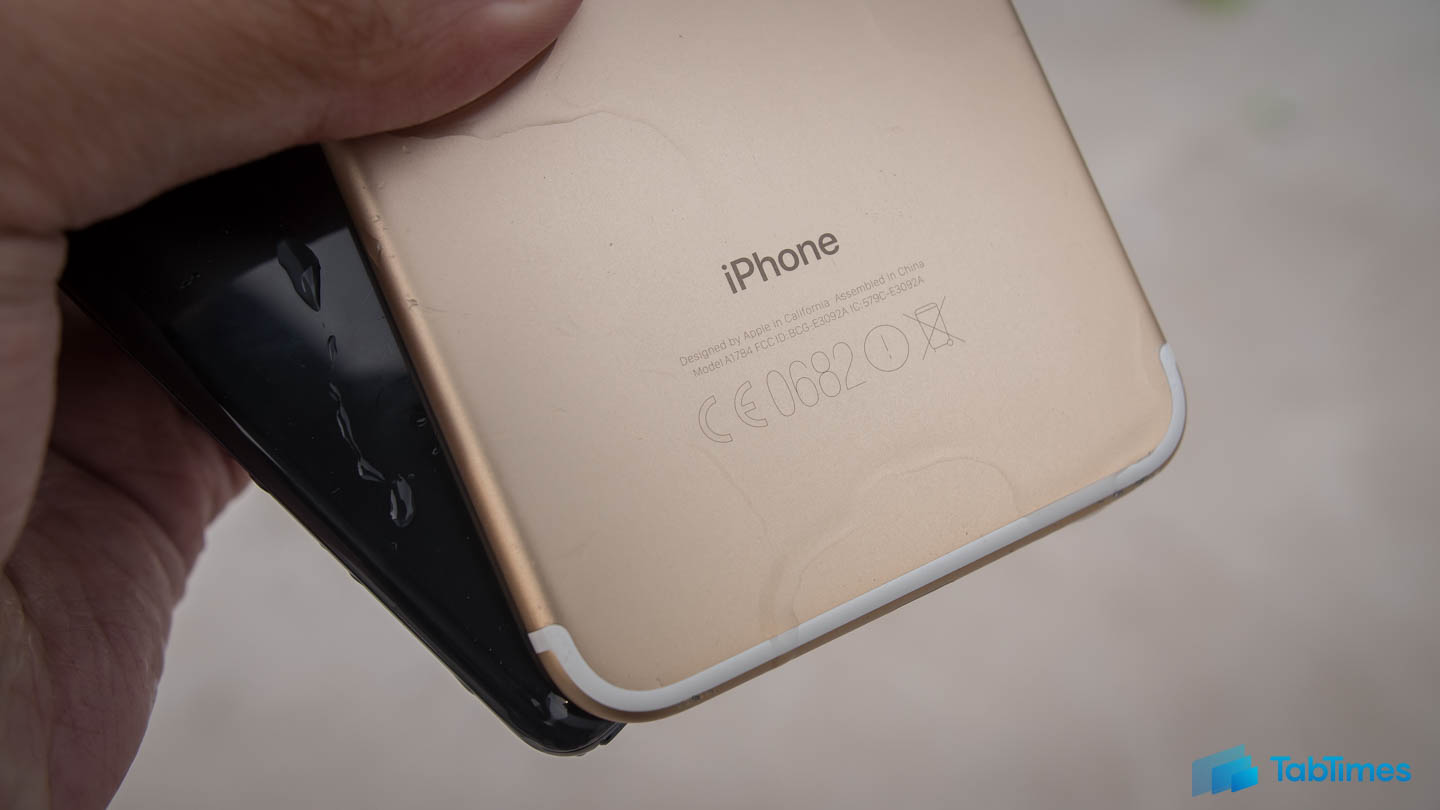Affiliate links on Android Authority may earn us a commission. Learn more.
Made by Google: How will Google taking on the iPhone change the Android ecosystem?
Published onOctober 6, 2016

Unlike OEMs such as Samsung and LG, Google has a track record of being fairly low-key in the weeks leading up to special hardware events, especially when it comes to the most recent members of the Nexus family. That’s why many commentators were a bit surprised when the search giant started teasing this year’s October 4th event with playful, minimalist pieces. What started out as coy advertising quickly unveiled itself as a full-blown campaign with building-sized posters and guerilla artwork.
The Pixel, it seems, is being positioned to go head-to-head with Apple’s iPhone. It makes a lot of sense. For years, the Nexus line has served as a kind of showcase of what the operating system can do, offering its fans the most vanilla Android experience available. The Pixel, however, would appear to take this concept a number of steps further.

First, the #MadeByGoogle designation is critical. Nexus phones have always been created by third party smartphone makers with guidance from Google. Although we know HTC is the actual builder of the Pixel, there’s not a hint of any HTCbranding on the device. It would appear that the Pixel was designed not under Google guidance, but under Google direction. In this sense, it’s perfectly appropriate to say that the device is “made by” the search giant. Brian Rakowski, VP of product management for Android, described Nexus in contrast to Pixel as follows:
The idea [of Nexus] was to show everyone how it should be done. All the partners in the phone manufacturing space took it and built great products on top of it. Meanwhile, Nexus kind of trundled along at the same small scale.
The Pixel is by no means “small scale.” Indeed, as Rick Osterloh, head of Google’s new hardware division, pointed out, Google is the “seller of record” for the Pixel. Although we don’t know exactly how much cash Google is throwing at this endeavor, Jason Bremner, a former Qualcomm exec, observed that “part of being the seller of record means that inventory, that supply chain risk — you know, hundreds of millions of dollars on the line on any given day — that’s on Google now.”
Second, the Pixel’s higher price tag represents Google striding boldly into the premium smartphone market. The design seems to do away with any of the potentially gimmicky extras that have ended up polarizing fanbases and hamstringing some devices (remember LG G5’s “friends?”), and the designers have gone with a much more stripped-down, mass-market approach. Hell, let’s just say it: the Pixel looks like an iPhone.
Hell, let’s just say it: the Pixel looks like an iPhone.
For a long time, the primary battle in the mobile arena has been Samsung vs. Apple. But Samsung has always kind of had one hand tied behind their back in this brawl because their Samsung-designed products run a Google-designed OS and are reliant on apps hosted in a Google-designed store. Apple has absolute control over everything: the build of the device, iOS, the App Store. It’s a storm of synchronized hardware and software, all designed to work in balanced harmony with each other.
Only Google is in a position to truly match this kind of technological orchestra. The company has long shied away from becoming a major consumer hardware company, preferring to more or less sit on the sidelines in that regard. However, if they step into the arena with as much force as they appear to be doing, how will this affect the Android ecosystem at large?

Right now, there are too many variables in the air to predict the fallout with any kind of certainty, but such a dynamic has the potential to shake up the mobile market in a big way. If the Pixel is indeed an answer to the iPhone, it represents – not a unified Android experience – but a unified Google experience.
This will be interesting because Google and Apple are fundamentally different kinds of companies. Google is a software and services company, which is why they’ve long been happy to let others peddle hardware that runs their software and apps for profit. The hardware game is a much tougher market than software (just ask Amazon).
Apple is keenly aware of this, them being primarily a hardware company that designs software intended to increase hardware sales. Apple is fundamentally dependent on the iPhone, as sales of the device represent a majority of their entire revenue. iPhone sales constituted a whopping 57 percent of Apple revenue in the second quarter of this year, for instance.
The Pixel represents - not a unified Android experience - but a unified Google experience.
Google is becoming more like Apple, but they are currently positioned better for the task. They will not be financially dependent on the Pixel, and the company has proven that they have no problem working on long, large scale projects at a loss.
However, the Pixel stands to make Google competitors with the likes of Samsung. Indeed, competitors with many Android smartphone makers. It’s difficult to predict how a company like Samsung will react to this repositioning. Now their Samsung-designed phones running Google-designed operating systems will be competing with two giant corporations possessed of molecular-level control over their hardware and software.
As tech enthusiasts, we tend to have a better gauge on the diversity of the smartphone market, but in the minds of most consumers, phones essentially come down to “iPhones,” “Galaxies,” and “Androids,” with the last one being allotted the least brainspace. By creating a full-fledged “Google Phone,” the search giant is asserting their identity in the market in a profound way.
Some of the biggest complaints with “Galaxy” and “Android” devices have to do with delayed rollouts and buggy/sluggish UI. By remedying these irritations, it’s wholly possible that Google may be able to weigh into the market as heavily as “iPhone,” relegating “Galaxy” devices to the mosh pit of “Android.” Consumers in general would perceive the market as “iPhones” vs. “Google Phones,” with all others coming second.
The arrival of a “Google phone” has significant implications for Android phones, and future versions of the Android operating system will no doubt come under close scrutiny for any hint of anti-competitive behavior. And Google is no stranger to anti-competitive behavior accusations. Google has a significant (potentially unfair) advantage when competing with other OEMs because they will have access to Android code long before anyone else because, well, they write it.
Since Google will have full control over both hardware and software, with no necessity to re-skin the software to better suit it to their devices (a la Samsung’s TouchWiz or HTCSense), Google will be operating on a completely different level than other Android OEMs. They are truly stepping up to the iPhone’s level, and this could irritate other Android smartphone makers.

The question may become, will users prefer Android phones or Google phones? The hallmark of the Android ecosystem is its brilliant diversity. Many users accept the faults and fumbles of companies attempting to innovate with things like modular design, because in spite of the flaws, it’s that element of choice that sets Android apart from Apple’s monolithic iPhone. Google erecting their own monolith in Android park could ruffle some fan feathers.
Still, just as Nexus-lovers are quick to point out, sticking with Google means fast updates, an integrated Android experience, and you don’t even ever have to think about the word “fragmentation.” It’s possible that some fans fed up with slow rollouts and security concerns will set aside their Motos and LGs and enter into Google’s warm (if uniform and boring) embrace.
There is another possibility. Rather than leverage their obvious advantage by rolling out Android code to Google devices ahead of making it available to other OEMs, Google could potentially hold off on updating their own devices and provide the code to OEMs with enough of a head start for them to adjust it for their devices. This deliberate nerfing/delaying could soften the blow to OEMs.
Indeed, as Bloomberg observes, Google has deliberately “firewalled” Osterloh’s hardware division from the Android development team in an effort to treat Google phones in the same manner as other OEMs. As they report:
Hiroshi Lockheimer, who runs the Android unit and is a longtime Osterloh pal, says his group will treat the hardware team like any customer. “Samsung is a very important partner, as is LG, HUAWEI and so on,” he says. “Rick is an important partner. Samsung tells us confidential information about their product line, their plans. We won’t tell LG that, and vice versa. That continues. Everyone is treated the same, including Rick’s team.”
So for better or for worse, Google is stepping into the consumer mobile hardware game, and depending on how the cards fall, this could have some pretty far-reaching implications. How do you think OEMs and consumers will react to Google’s answer to the iPhone? Do you feel that the Pixel is being positioned to go head-to-toe with Apple, or simply an extension of the existing Nexus philosophy? Let us know your take in the comments below!
